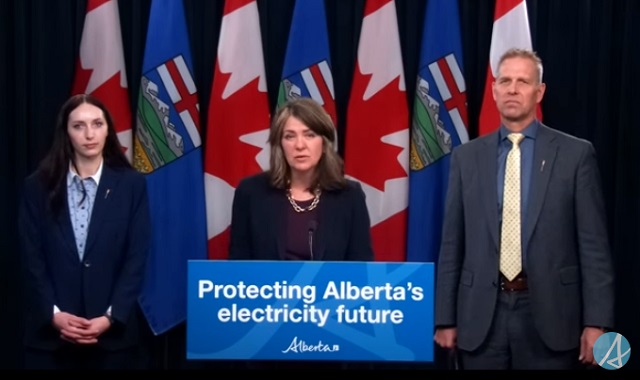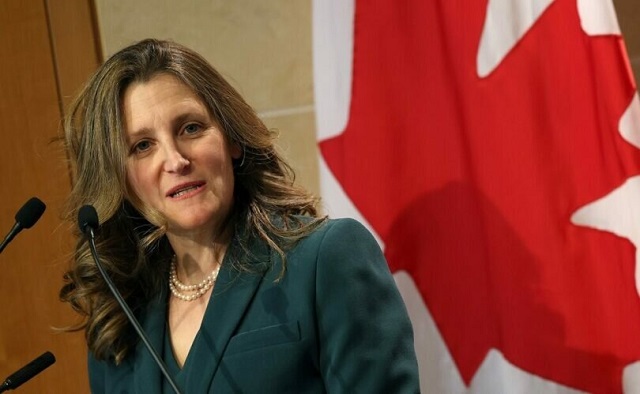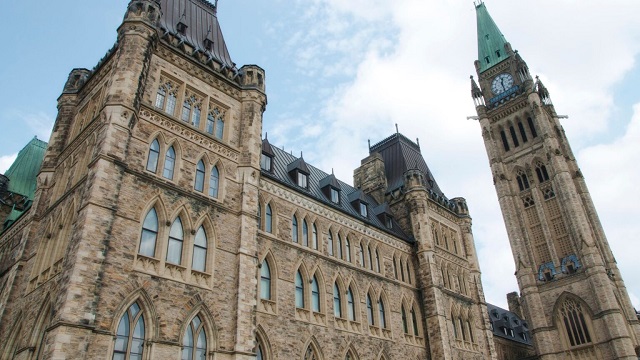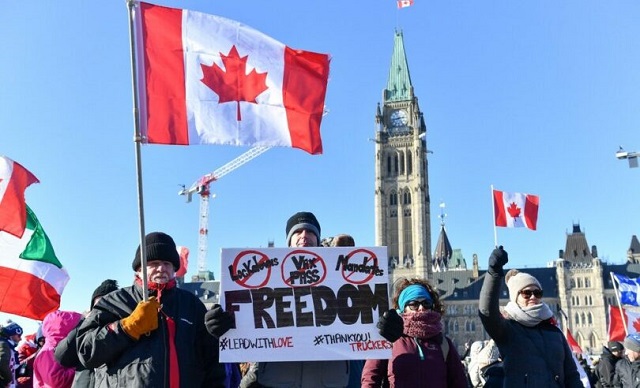Alberta
Being a Cop has Always Been a Thankless Job

Being a cop has always been a thankless job.
But in our current climate, police would be happy for the bygone days of a thankless community, compared to what they are currently enduring.
Never before in modern history have police officers been accused of being the worst of society. Today, the reputation of cops is constantly under attack by the media. And fringe groups who purport to have a noble agenda are paradoxically allowed by our governments to wreak havoc on our cities without consequence. Entire city blocks have been burned, children have been murdered, and yet the media all but ignores the backlash of the problem, which they themselves are largely responsible for inciting.
Well-intended people have been duped into believing that roughly half of society are devout white supremacists, and that visible minorities are being hunted and killed by the police. The media bolsters this false narrative daily, which has created an incredibly unstable and explosive environment. When a group of people believes that they are in danger of being killed by the police, it’s only natural for a member of that group to be afraid, and resist arrest. When you resist arrest, you are making a safe situation dangerous by escalating the force required to arrest you. If you comply with the orders of the police officer, you are almost ALWAYS safe. It is extremely rare that a compliant arrestee is harmed or killed as a result of the arrest. In those rare instances, the police officers are likely at fault, and deserve to be charged. Only improved training and selection practices can reduce these rare instances.
A part of policing which very few average people are willing to engage in is combat. Most people have never been in a dangerous fistfight, but for cops, getting into scraps is a common occurrence. Some of these fights involve armed bad guys who are high on crystal meth, and who are nearly impossible to control. When a crazed meth head charges at you with a knife, the only realistic response is to pull out your pistol and fire a few rounds into the center of the target. The pollyanic fools who cry, “you should have shot them in the leg!” have no concept of the reality of combat. There isn’t a police officer alive that has the training and skill to reliably make a “leg shot” against a crazed charging assailant. And no, a taser is not reliable enough to deploy in this situation either.
Armchair critics are quick to judge and condemn the use of violent force, without having the faintest idea of the reality of a combat environment. Many will recoil at the word “combat”, by saying, “combat is for a battle field, not for our streets! Our cops are not soldiers!” And, they would be wrong. Combat is a violent “must win” altercation. When someone is violently resisting arrest…that absolutely qualifies as combat. It’s not the police who initiate the combat…it’s the person being arrested who creates the combat situation, which the police have no choice but to respond to with force.
Police officers work in a world that is completely foreign to most middle class folks. The average person can no more understand what it is to be a cop, than they can understand what it’s like to live on Mars.
It seems that the public has forgotten the simple fact that cops are just people. Flawed, regular human beings who have decided to risk their lives so that others may live safely.
When people join the police force, they do so for one of four reasons.
- Most join out of a sense of responsibility to provide meaningful service to their community. These people tend to make the best police officers, and often make up the majority of a good police force. Lately the media has been ignoring the fact that most police officers fit this description.
- Some others join out of a sense of adventure, craving fun and action in their job.
- And there are those who join simply to have a respectable, and reliable source of income.
- But unfortunately, there are a few who join because they crave having a sense of power. These are the problem cops which every police organization tries to weed out, yet every police service has at least a few of these problem children to deal with. These are the minority of cops, which the media are currently focusing on, and they are painting all police with this contaminated brush.
In addition to these four types of police officers, there is a rare outlier. Occasionally, a trigger-happy psychopath will slip through the cracks. The psychological evaluations are put in place as a filter to weed out these types of applicants, but no system is perfect. Psychopaths often know the right words to say, and how to mask their true identity. Even a lie detector test can be defeated by a psychopath or sociopath. I won’t pretend that these people don’t occasionally make it onto an otherwise honourable police service, however I also won’t agree that police services across the western world have been over-run by them as the media would have you believe.
There are bad apples in every organization, and try as you might, you’ll never weed 100% of them out. If you’re going to have a large group of people, there will always be a tiny minority within the ranks who will potentially cause great harm.
The truth about police officers is that they have chosen a life of dangerous, high stress service, so that you and I can live a safer, less stressful life. They deal with dangerous people, so that YOU don’t have to. They literally get punched in the face, so that YOU don’t have to. Lets face it, most people have no ability whatsoever to defend themselves against a violent attacker. We should all be grateful to those who put themselves in harms way so that they can arrest, and lock up the people who are a danger to society.
Now, with all of that being said, how can Police officers muscle through the negativity and added danger they now face?
Let’s’ start with something we can control, which is our perspective.
“I hate you!” are three words a parent never wants to hear from their child. When it happens, although it may sting for a moment, a good parent quickly realizes that their kid is simply having a fit, and doesn’t know how else to express themselves. Also, it’s easy to discard unkind words from a child by realizing that they simply don’t know any better. “If they knew better, they would do better” is a mantra I strive to remember.
When it’s a large group of “adults” who are pitching a fit in the form of a riot, it’s difficult to remember that they don’t know any better. EVERYONE feels justified in their cause, regardless of the facts at hand.
Regardless of the haters, try to remember why you’re there in uniform. You are there to serve those who need you, with or without their appreciation. Your life is one of sacrifice, and some days suck worse than others, but there are still good days. You help. You DO make a difference, and whether the public knows it or not, they need you.
Remember that the anti-cop sentiment is based on a belief in a false narrative. Despite the demonstrative evidence to the contrary, these misguided people actually believe that the Police are out to get people of colour. We must realize that although misguided, their outrage is real to THEM. They really don’t know any better, and it’s not their fault. The media has created this environment with their bias.
Be mindful of your focus.
Now is a great time to stay off of Facebook. If you can’t limit your social media, then at least purge everyone from your contacts list who shared negative posts about the police. It’s easy to unfriend, unfollow, or even BLOCK people. You don’t need to engage. You won’t change anyone’s mind, so why try?
Remember, and focus on those who appreciate you. If you look, you’ll see armies of supporters who are cheering for you. They may be the “silent” majority, but they are there all the same.
Alberta
Alberta government should create flat 8% personal and business income tax rate in Alberta

From the Fraser Institute
By Tegan Hill
If the Smith government reversed the 2015 personal income tax rate increases and instituted a flat 8 per cent tax rate, it would help restore Alberta’s position as one of the lowest tax jurisdictions in North America
Over the past decade, Alberta has gone from one of the most competitive tax jurisdictions in North America to one of the least competitive. And while the Smith government has promised to create a new 8 per cent tax bracket on personal income below $60,000, it simply isn’t enough to restore Alberta’s tax competitiveness. Instead, the government should institute a flat 8 per cent personal and business income tax rate.
Back in 2014, Alberta had a single 10 per cent personal and business income tax rate. As a result, it had the lowest top combined (federal and provincial/state) personal income tax rate and business income tax rate in North America. This was a powerful advantage that made Alberta an attractive place to start a business, work and invest.
In 2015, however, the provincial NDP government replaced the single personal income tax rate of 10 percent with a five-bracket system including a top rate of 15 per cent, so today Alberta has the 10th-highest personal income tax rate in North America. The government also increased Alberta’s 10 per cent business income tax rate to 12 per cent (although in 2019 the Kenney government began reducing the rate to today’s 8 per cent).
If the Smith government reversed the 2015 personal income tax rate increases and instituted a flat 8 per cent tax rate, it would help restore Alberta’s position as one of the lowest tax jurisdictions in North America, all while saving Alberta taxpayers $1,573 (on average) annually.
And a truly integrated flat tax system would not only apply a uniform tax 8 per cent rate to all sources of income (including personal and business), it would eliminate tax credits, deductions and exemptions, which reduce the cost of investments in certain areas, increasing the relative cost of investment in others. As a result, resources may go to areas where they are not most productive, leading to a less efficient allocation of resources than if these tax incentives did not exist.
Put differently, tax incentives can artificially change the relative attractiveness of goods and services leading to sub-optimal allocation. A flat tax system would not only improve tax efficiency by reducing these tax-based economic distortions, it would also reduce administration costs (expenses incurred by governments due to tax collection and enforcement regulations) and compliance costs (expenses incurred by individuals and businesses to comply with tax regulations).
Finally, a flat tax system would also help avoid negative incentives that come with a progressive marginal tax system. Currently, Albertans are taxed at higher rates as their income increases, which can discourage additional work, savings and investment. A flat tax system would maintain “progressivity” as the proportion of taxes paid would still increase with income, but minimize the disincentive to work more and earn more (increasing savings and investment) because Albertans would face the same tax rate regardless of how their income increases. In sum, flat tax systems encourage stronger economic growth, higher tax revenues and a more robust economy.
To stimulate strong economic growth and leave more money in the pockets of Albertans, the Smith government should go beyond its current commitment to create a new tax bracket on income under $60,000 and institute a flat 8 per cent personal and business income tax rate.
Author:
Alberta
Province to stop municipalities overcharging on utility bills

Making utility bills more affordableAlberta’s government is taking action to protect Alberta’s ratepayers by introducing legislation to lower and stabilize local access fees. Affordability is a top priority for Alberta’s government, with the cost of utilities being a large focus. By introducing legislation to help reduce the cost of utility bills, the government is continuing to follow through on its commitment to make life more affordable for Albertans. This is in addition to the new short-term measures to prevent spikes in electricity prices and will help ensure long-term affordability for Albertans’ basic household expenses.
Local access fees are functioning as a regressive municipal tax that consumers pay on their utility bills. It is unacceptable for municipalities to be raking in hundreds of millions in surplus revenue off the backs of Alberta’s ratepayers and cause their utility bills to be unpredictable costs by tying their fees to a variable rate. Calgarians paid $240 in local access fees on average in 2023, compared to the $75 on average in Edmonton, thanks to Calgary’s formula relying on a variable rate. This led to $186 million more in fees being collected by the City of Calgary than expected.
To protect Alberta’s ratepayers, the Government of Alberta is introducing the Utilities Affordability Statutes Amendment Act, 2024. If passed, this legislation would promote long-term affordability and predictability for utility bills by prohibiting the use of variable rates when calculating municipalities’ local access fees. Variable rates are highly volatile, which results in wildly fluctuating electricity bills. When municipalities use this rate to calculate their local access fees, it results in higher bills for Albertans and less certainty in families’ budgets. These proposed changes would standardize how municipal fees are calculated across the province, and align with most municipalities’ current formulas.
If passed, the Utilities Affordability Statutes Amendment Act, 2024 would prevent municipalities from attempting to take advantage of Alberta’s ratepayers in the future. It would amend sections of the Electric Utilities Act and Gas Utilities Act to ensure that the Alberta Utilities Commission has stronger regulatory oversight on how these municipal fees are calculated and applied, ensuring Alberta ratepayer’s best interests are protected.
If passed, this legislation would also amend sections of the Alberta Utilities Commission Act, the Electric Utilities Act, Government Organizations Act and the Regulated Rate Option Stability Act to replace the terms “Regulated Rate Option”, “RRO”, and “Regulated Rate Provider” with “Rate of Last Resort” and “Rate of Last Resort Provider” as applicable. Quick facts
Related information |
-

 Energy1 day ago
Energy1 day agoReflections on Earth Day
-

 Housing24 hours ago
Housing24 hours agoTrudeau’s 2024 budget could drive out investment as housing bubble continues
-

 Business2 days ago
Business2 days agoMaxime Bernier warns Canadians of Trudeau’s plan to implement WEF global tax regime
-

 Alberta2 days ago
Alberta2 days agoAlberta moves to protect Edmonton park from Trudeau government’s ‘diversity’ plan
-

 Bruce Dowbiggin2 days ago
Bruce Dowbiggin2 days agoCoyotes Ugly: The Sad Obsession Of Gary Bettman
-

 Freedom Convoy2 days ago
Freedom Convoy2 days agoOttawa spent “excessive” $2.2 million fighting Emergencies Act challenge
-

 Brownstone Institute2 days ago
Brownstone Institute2 days agoA Coup Without Firing a Shot
-

 COVID-192 days ago
COVID-192 days agoWHO Official Admits the Truth About Passports









